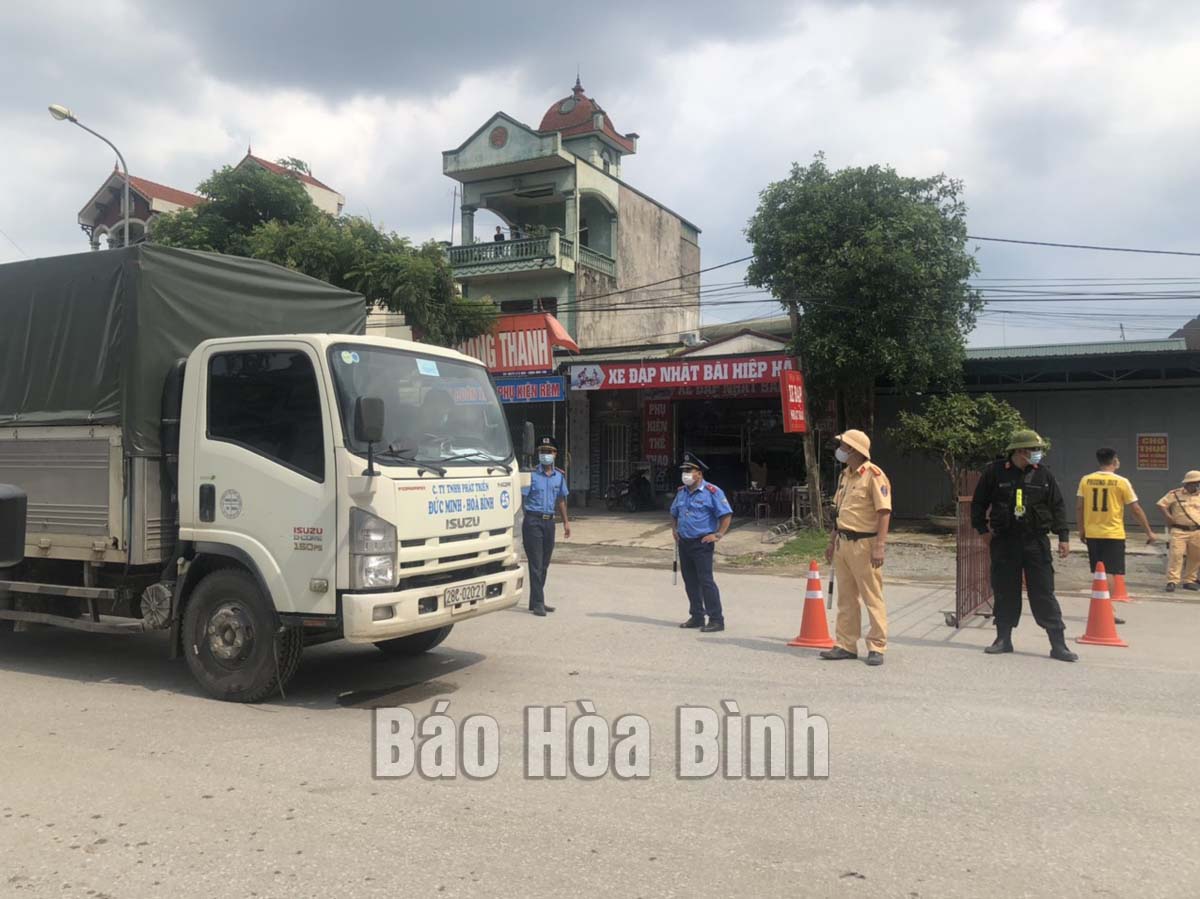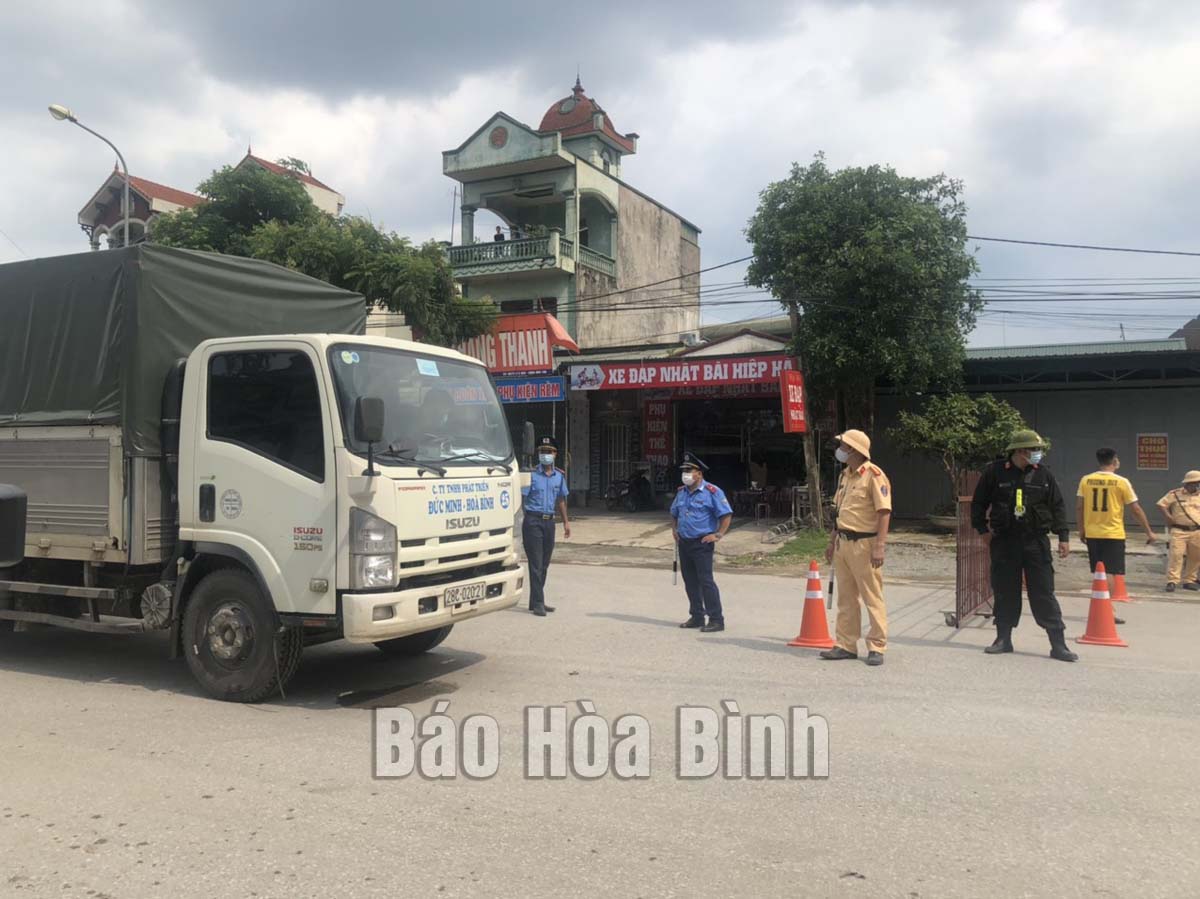


 The members of an inter-sectoral checkpoint
on Highway 6, Hoa Son commune (Luong Son) are controlling the vehicles entering
the area.
The members of an inter-sectoral checkpoint
on Highway 6, Hoa Son commune (Luong Son) are controlling the vehicles entering
the area.
Accordingly, two provincial-level inter-sectoral checkpoints have been reactivated to prevent and control Covid-19 epidemics on the routes of road traffic and the gateways to Hoa Binh province as follows:
Checkpoint 1: On Highway 6, in Luong Son town, Luong Son district (adjacent to Xuan Mai area, Hanoi city), including 26 people (Provincial Public Security, military controllers, health sector officials, traffic inspectors).
Checkpoint 2: On Hoa Lac - Hoa Binh road in Quang Tien commune, Hoa Binh city (bordering Thach That district, Hanoi city), including 26 people (Provincial Public Security, military controllers, health sector officials, traffic inspectors).
The duties of the forces participating in the checkpoints: Divided into work shifts to ensure 24/24 - hour operation, inspecting and controlling 100% of the people and the vehicles entering the province. It is necessary to measure the body temperature, check identification documents and documents related to prevention and control of Covid-19 epidemics, it is mandatory for the electronic or paper medical declaration; organizing a quick Covid-19 test for drivers, escorts, the people on vehicles... if they do not have one of the three documents proving that they have had 2 doses of Covid-19 vaccine, or the certificate approving that they have negative PCR test result for SARS-CoV-2 within 72 hours or negative antigen rapid test result within 24 hours; ensuring the sufficient documents for the epidemic prevention and control and meeting the fastest circulation time; strengthening propaganda and recommending that the drivers and the people on vehicles do not stop or park to eat and rest at restaurants on the traffic routes and densely populated areas in the province.